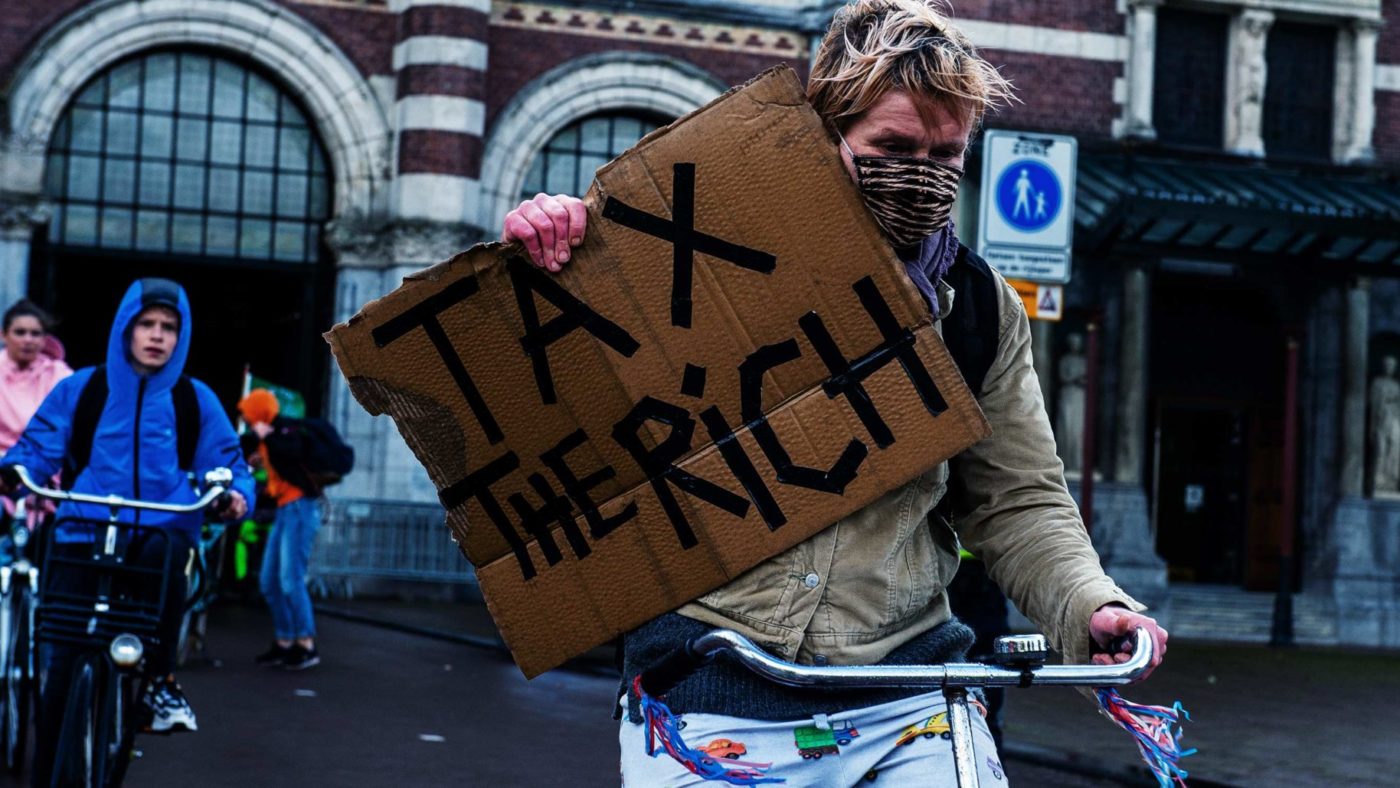Life under lockdown may be a profoundly, relentlessly monotonous existence but Conservative politicians floating a different tax increase each week is no way to spice things up. No, Minister, headlines about raising Corporation Tax or hiking fuel duty will do little to shatter the chronic sense of timelessness that has characterised the past 11 months.
Now entering stage left we have Mel Stride, Chair of the Treasury Select Committee, with the latest iteration of one of Westminster’s worst recurring ideas. The Tory MP yesterday told Times Radio: “I think what might be more promising in terms of effectively raising more tax might be a one-off wealth tax”.
The general case against such taxes is simple: punitive levies on the rich can be counterproductive and encourage avoidance, evasion and capital flight. As my colleague Professor Philip Booth explains, “a wealth tax is double taxation and an attack on property rights far greater than the attack on property rights that comes from taxation in general”. It specifically targets the income that people have chosen to save and invest, making that bank-breaking Caribbean cruise even more alluring than it was before this interminable winter lockdown. Splurge and you avoid the tax; save and you pay it.
We’ve been flirting with, and ruling out, the idea for decades – take this quote from former Labour Chancellor Denis Healey: “We had committed ourselves to a wealth tax; but in five years I found it impossible to draft one which would yield enough revenue to be worth the administrative cost and political hassle.”
While the UK has had the occasional close shave, however, other nations have gone full Sweeney Todd. The number of OECD countries levying individual net wealth taxes dropped from 12 in 1990 to four in 2017. There are many OECD countries that used to have wealth taxes but then repealed them in the 1990s and 2000s including Austria (in 1994), Denmark (in 1997), the Netherlands (in 2001), Finland, Iceland, and Luxembourg (all three in 2006).
As Stride mentioned in the interview, France introduced a wealth tax (in the 1980s) but later withdrew it. Not only did it account for less than 2% of French tax receipts in 2015, but it arguably led to an exodus of France’s richest: more than 12,000 millionaires left France in 2016. In neighbouring Germany, levies of 0.5% and 0.7% on personal and corporate wealth were introduced in 1979. The rate rose to 1% in 1995, but the Federal Constitutional Court struck down the wealth tax that year, and it was effectively abolished by 1997.
In Sweden, wealth taxation was introduced in 1911 and scrapped in 2007. According to research from Magnus Henrekson and Gunnar Du Rietz, “people could with impunity evade the tax by taking appropriate measures,” including taking on excessive debt to buy exempted assets. “The Swedish wealth tax also prompted large outflows of capital and the expatriation of well-known business people, such as the founder of Ikea, Ingvar Kamprad,” the authors found.
The current “this time it’ll be different” plea appears to hinge on this being a “one-off” tax. But if so, it would presumably mean a mass revaluation of properties: exactly what successive governments have been putting off doing for the last 30 years by failing to reform council tax.
And is the ‘wealth tax’ really just a property tax, or would it apply to all assets? If the latter, would the Government really find it worthwhile to send an army of valuers around the country to assess fine art, vintage cars or jewellery? And if such an army of valuers were recruited, surely ministers would think it sensible to keep that infrastructure in place for an annual levy, rather than just a one-off. Denis Healey’s point about administrative costs and political hassle seems extremely apposite.
Taking a step back, we really do find ourselves in an extraordinary situation, in which Conservative politicians are flying kites about various tax hikes while Labour, perhaps in an effort to bolster its “back British businesses” credentials, is pushing for restraint.
Shadow Chancellor Anneliese Dodds, for instance, has called for Rishi Sunak to use the Budget to increase the business rates holiday and extend the reduced VAT rate for hospitality businesses from the end of next month for another six months. Labour’s record isn’t squeaky clean, however: according to reports the party would support a one-off tax raid on internet companies, and it hasn’t ruled out the need for tax rises in future. But credit where it’s due – the opposition at least acknowledges the absurdity of spending a year supporting the private sector through loans and furlough, only to hand it the bill as it emerges from hibernation.
In the end, the wealth tax debate could remain academic: it may be that the UK economy could bounce back stronger than expected, and the public finances could continue to beat the forecasts of the Office for Budget Responsibility. We’ve got a good chance of getting through the crisis without the need for ministers to contemplate raising taxes, however appealing the distraction may be.
Click here to subscribe to our daily briefing – the best pieces from CapX and across the web.
CapX depends on the generosity of its readers. If you value what we do, please consider making a donation.


